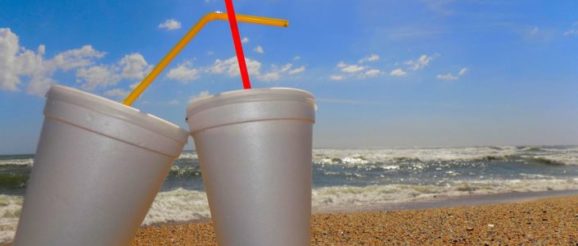New York City bans polystyrene foam starting January 1 | Inhabitat – Green Design, Innovation, Architecture, Green Building

New York City has officially become the largest jurisdiction in the United States to ban polystyrene foam food and beverage containers. On January 1st, the city’s new policy went into effect after a five-year lobbying and litigation effort from the plastics industry to upend the city’s environmental initiative.
Back in 2013, the City Council authorized the statute that states NYC restaurants, food vendors and stores can’t possess, sell or offer polystyrene foam containers for food and beverages. In addition, stores can’t sell or offer “packing peanuts,” which is polystyrene foam used in shipping. They added the ban on the peanuts because they are difficult for both consumers and sanitation officials to dispose of sustainably.
Even though the policy took effect on January 1st, businesses will have a six-month warning period to make the necessary changes before the sanitation department starts to enforce the ban. After June 30th, violators will be facing a $250 fine for their first offense.
In anticipation of the new rule, many NYC food service establishments have already abandoned polystyrene containers and switched to more environmentally friendly options. Some of the substitutes are containers made from aluminum, compostable paper or easily-recycled plastics.
Since hitting the market in the 1970s, polystyrene foam food and beverage containers have been an environmental problem because of their brittle composition, which means they break down into tiny pieces and litter the city streets, park, and beaches.
To make matters worse, the foam gets flushed into storm drains and gets into local waterways, where fish and birds mistake the foam pieces for food. And, if the containers do make it to a landfill, they can survive for more than a century.
The price of more environmentally-friendly containers is nearly the same as the polystyrene foam. However, if businesses with an annual gross income under $500,000 can’t find a substitute with a comparable price, they can obtain a waiver from the ban.
